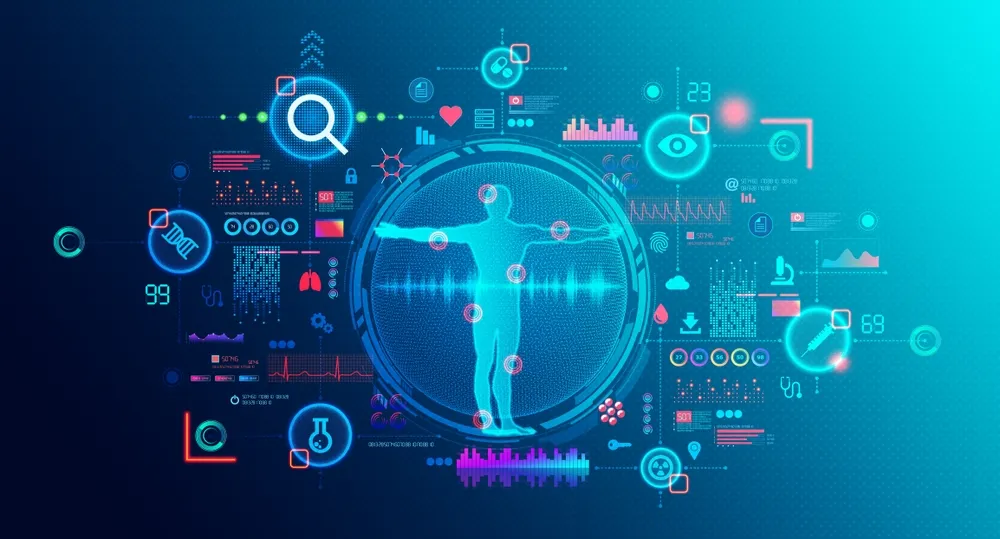PLANO, TX — February 2026 — PracticeEHR has earned recognition as a 2026 FrontRunner for Electronic Medical Records by Software Advice. The FrontRunners report identifies top-performing software products by evaluating...
Obesity, a pandemic that has long been overlooked, is rapidly spreading across the globe. Currently, 30% of the global population, or approximately 2.1 billion around the world, are obese. This raises a serious concern about a surge in comorbidities associated with obesity, like cardiovascular diseases, cancers, diabetes, and strokes. Therefore, optimal bariatric patient care has become more critical than ever before. Implementing EHR for bariatric medicine is one proven approach to ensure superior patient care through streamlined data management.
The economic burden associated with obesity is estimated to be in the United States alone. With disease management associated with obesity in bariatric clinics, there comes a massive pool of crucial patient data. EHR for bariatric medicine provides an opportunity for streamlined patient data management.
Here, we discuss how implementing an efficient EHR, like Practice EHR, can help streamline patient data management in bariatric clinics.

Why is Efficient Data Management Necessary in Bariatric Clinics?
In bariatric clinics, which focus on transformative weight loss and patient well-being, efficient data management plays a pivotal role. However, the question here is: why is efficient data management necessary in bariatric clinics? Here is why!
● For Optimal Patient Outcomes
Efficient data management resides at the heart of optimal patient care. In bariatric clinics, each patient's weight loss journey is unique, and their medical records are a comprehensive tapestry of health information.
Efficient data management allows healthcare providers to access critical patient data promptly, from pre-surgical assessments to post-operative follow-ups. Moreover, it empowers physicians to tailor treatment plans, track progress, and make informed decisions.
● For Patient Safety
Safety and accuracy are of critical importance in bariatric care, where surgical procedures are common. Precise and organized data management reduces the risk of errors, such as medication interactions or inaccurate dosages.
Access to a patient's complete medical history, allergies, and prior surgical interventions ensures that healthcare providers can deliver the safest care. Thus, it ultimately leads to optimal patient outcomes.
● For Regulatory Compliance
Efficient data management is also necessary for regulatory compliance in bariatric medicine. That’s because bariatric clinics must adhere to healthcare regulations and standards to maintain quality care and avoid legal complications. Moreover, proper data management ensures that clinics meet these compliance requirements, such as accurate record-keeping and data privacy.
● For Effective Communication Between Healthcare Providers
Effective data management promotes seamless communication among healthcare teams, which is essential in bariatric clinics. Surgeons, dietitians, nurses, and other specialists collaborate to provide holistic care to patients. Thus, accessible data helps all team members stay informed about each patient's progress and needs.
How Does EHR for Bariatric Medicine Streamline Patient Data Management?
Efficient patient data management in bariatric clinics is crucial, and steps must be taken to ensure its effectiveness. Implementing EHR for bariatric medicine offers the most effective approach to patient data management. But how exactly does Electronic Health Records (EHR) for bariatric medicine streamline patient data management?
1. Convenient Patient Data Access Through Cloud-based Storage
Cloud-based storage facilitates seamless access to patient data from any location with an internet connection and a device. This level of flexibility is especially beneficial for bariatric professionals, who might need to review patient records or update treatment plans outside the clinic's physical premises.
Moreover, since collaboration is integral to bariatric care, often involving multi-disciplinary teams, cloud-based EHR systems allow real-time data sharing and updates among healthcare providers. Thus, surgeons, dietitians, nurses, and other specialists can access and contribute to patient records, improving care coordination.
Furthermore, bariatric clinics handle sensitive patient data, making data security paramount. Therefore, cloud-based EHR systems, like Practice EHR, employ rigorous security measures to safeguard patient information. Additionally, they assist bariatric clinics in maintaining compliance with healthcare data privacy regulations, such as HIPAA, ensuring patient confidentiality.
2. Customized Templates and Treatment Plans
Electronic Health Records (EHR) systems for bariatric practices offer a range of tools and features that streamline patient data management. Among these, customized templates and treatment plans emerge as a crucial asset.
Moreover, bariatric medicine demands a specialized approach. EHR systems for this field typically provide pre-designed templates and treatment plans tailored to the specific needs of bariatric patients. These templates contain various aspects of bariatric care, from initial consultations to post-surgery follow-ups.
Furthermore, bariatric practitioners often need to document a range of patient information, such as weight history, dietary habits, comorbidities, and surgical details. Therefore, customized templates enable healthcare providers to enter this data quickly and accurately. This not only saves time but also reduces the likelihood of errors.
Lastly, EHR systems, like Practice EHR, incorporate customized templates and treatment plans, which facilitate advanced data analytics. Clinics can use this data to track patient progress, evaluate the efficacy of treatment plans, and make data-driven decisions to ensure optimal patient outcomes.
3. Reduced Data Errors and Enhanced Accuracy
In the complex landscape of healthcare, especially within the domain of bariatric medicine, precision and accuracy are of paramount importance. A key element of this precision is the management of patient data. Electronic Health Records (EHR) systems tailored to bariatric practices have significantly transformed how data is handled.
Data errors can have profound consequences in healthcare. Therefore, EHR for bariatric medicine has built-in functionalities that significantly reduce data entry errors. Moreover, through standardized templates, predefined fields, and automated data validation, EHR systems enhance data accuracy, particularly in bariatric care, where minute details can impact patient outcomes.
Furthermore, the reduced data errors achieved through EHR systems enhance patient safety. Whether tracking changes in a patient’s weight over time or ensuring that surgical procedures are executed accurately, the meticulousness of EHR documentation helps avoid potentially detrimental oversights.
4. Facilitates Data-driven Insights and Decision Making
Incorporating Electronic Health Records (EHR) brings various advantages, particularly in facilitating data-driven insights and decision-making processes through patient data management. Intuitive EHR software, like Practice EHR, centralizes patient data, streamlining information from multiple sources into one cohesive repository.
This data unification offers healthcare providers, practice managers, and administrators a comprehensive view of a patient’s medical history and financial interactions. Thus, EHR empowers healthcare providers to make informed decisions.
Moreover, bariatric EHR systems are equipped with analytics tools that transform raw data into meaningful insights. These performance metrics offer valuable data-driven guidance, allowing healthcare providers to optimize their practice and enhance patient care.
For instance, practitioners can analyze trends in patient outcomes, evaluate the efficacy of specific treatments, and identify areas for improvement in their revenue cycle management (RCM). Furthermore, EHR systems are not merely data repositories but sophisticated decision-support tools. They provide alerts, reminders, and clinical guidelines that assist healthcare providers in making the most suitable clinical and administrative decisions.

Practice EHR - ONE Perfect Solution for All Bariatric Clinic Needs!
Practice EHR, a leading EHR and medical billing and coding system, outshines all when it comes to providing a one-stop solution for healthcare practice management needs. From safe and secure cloud-based storage to customized templates tailored to specialty needs, Practice EHR leaves nothing out of the equation. Moreover, onboarding is less of a hassle with a highly cooperative customer support staff available 24/7, 365 days a year.
Take the first crucial step toward streamlining patient data management in your bariatric clinic by onboarding the intuitive and secure Practice EHR software. REQUEST A DEMO today and explore why Practice EHR claims to be the best EHR software choice for your bariatric clinic!
Topics: Patient Care, EHR Solution, Specialty-Specific EHR, New Technology, digital age, Practice EHR News, Cloud-based EHR, Medical Billing, Bariatric EHR
RECENT POSTS



TOPICS
- EHR Solution (193)
- EHR (127)
- digital age (120)
- Patient Care (117)
- Medical Billing (112)
- Specialty-Specific EHR (112)
- Industry Update (98)
- Technology in Healthcare (84)
- EHR Features (79)
- Small Practice (78)
- Medical billing services (74)
- Integrated EHR (64)
- RCM (64)
- HIPAA Security (62)
- Cloud-based EHR (44)
- New Technology (44)
- Telemedicine (44)
- Healthcare Office Management (40)
- Practice EHR News (40)
- Kiosk (31)
- Revenue Cycle Management (28)
- AI Solutions (26)
- ePrescribing (21)
- AI Scribing (17)
- Best EHR Software (17)
- Practice Management Software (13)
- AI EHR (12)
- AI-powered Medical Billing (12)
- EMR (12)
- TeleVisit (12)
- AI Scribe (11)
- Practice Automation (11)
- Client Favorites (10)
- The ONE (10)
- AI scanning (9)
- Switching to New EHR (9)
- Urgent Care (9)
- Best EHR Practice (8)
- EHR Integration (8)
- MACRA/MIPS (8)
- Patient Portal (8)
- Psychiatry EHR (8)
- Medical Practice Management Software (7)
- Automated Health Tools (6)
- E-Prescribing (6)
- Product Updates (6)
- events (6)
- MIPS (5)
- Mobile EHR (5)
- Telehealth Platforms (5)
- Family Medicine EHR (4)
- HIPAA (4)
- Insider (4)
- Integrated Practice Management (4)
- Internal Medicine EHR (4)
- MIPS Reporting (4)
- Multilingual AI Scribe (4)
- Orthopedics EHR (4)
- Podiatry (4)
- Podiatry EHR (4)
- Regulatory Updates (4)
- Telehealth Platform (4)
- Automated EHR (3)
- Chiropractic EHR (3)
- Digital Experiences (3)
- EHR Flaws (3)
- EHR Implementation (3)
- EHR for Chiropractors (3)
- EHR for Small Practices (3)
- Eligibility Verification in Medical Billing (3)
- Medical Coding Services (3)
- Patient Check-in Kiosk (3)
- PracticeEHR GO App (3)
- AI Scan (2)
- Cash Flow (2)
- Cashless Payments (2)
- Clearinghouse (2)
- Dermatology EHR (2)
- EHR Scheduling (2)
- Family Medicine (2)
- Foot and Ankle Care (2)
- Foot and Ankle EHR (2)
- Health records 101 (2)
- Healthcare Compliance Certification (2)
- Medical Billing Partner (2)
- Medical Credentialing (2)
- Pediatrics EHR (2)
- Quality of Patient Care (2)
- Reporting Under MIPS (2)
- Risk and Liability in Medical Settings (2)
- Voice-Activated AI Scribe (2)
- What Works Clearinghouse (2)
- ACA Subsidy (1)
- AI Scribe for Pediatric Care (1)
- Bariatric EHR (1)
- Behavioral Health Practices (1)
- Billing Communication (1)
- Billing for Private Practices (1)
- Cardiology EHR (1)
- Charting (1)
- Data Security (1)
- Dos and Don'ts (1)
- EHR Dashboard (1)
- EHR Guides (1)
- EHR KPIs (1)
- EHR Questions to Ask (1)
- EHR Transition (1)
- EHR for Chronic Illness (1)
- EMR vs EHR Difference (1)
- ENT EHR (1)
- Endocrinology EHR (1)
- Gastroenterology (1)
- Gastroenterology EHR (1)
- General Surgery EHR (1)
- Geriatric AI scribe (1)
- Geriatrics EHR (1)
- Guides (1)
- Healthcare Practice Office Management (1)
- Help Center Videos (1)
- Insurance Reimbursement (1)
- KPI (1)
- Key Performance Indicators (1)
- Lab Processing (1)
- MACRA (1)
- Nephrology EHR (1)
- Neurology EHR (1)
- Pain Management EHR (1)
- Patient Behavior (1)
- Pediatric Care (1)
- Physical Therapy EHR (1)
- Practice Cash Flow (1)
- Practice Efficiency (1)
- Pulmonology EHR (1)
- Reconsider Your EHR (1)
- Simplify Practice Management (1)
- Staffing in Healthcare (1)
- Switch Medical Billing Providers (1)
- Urgent Care Medical Billing (1)
- Urology EHR (1)
- insurance claim denials (1)








